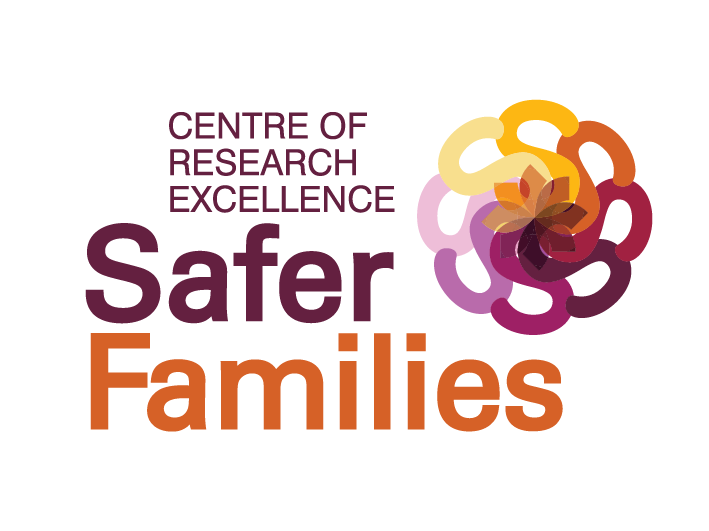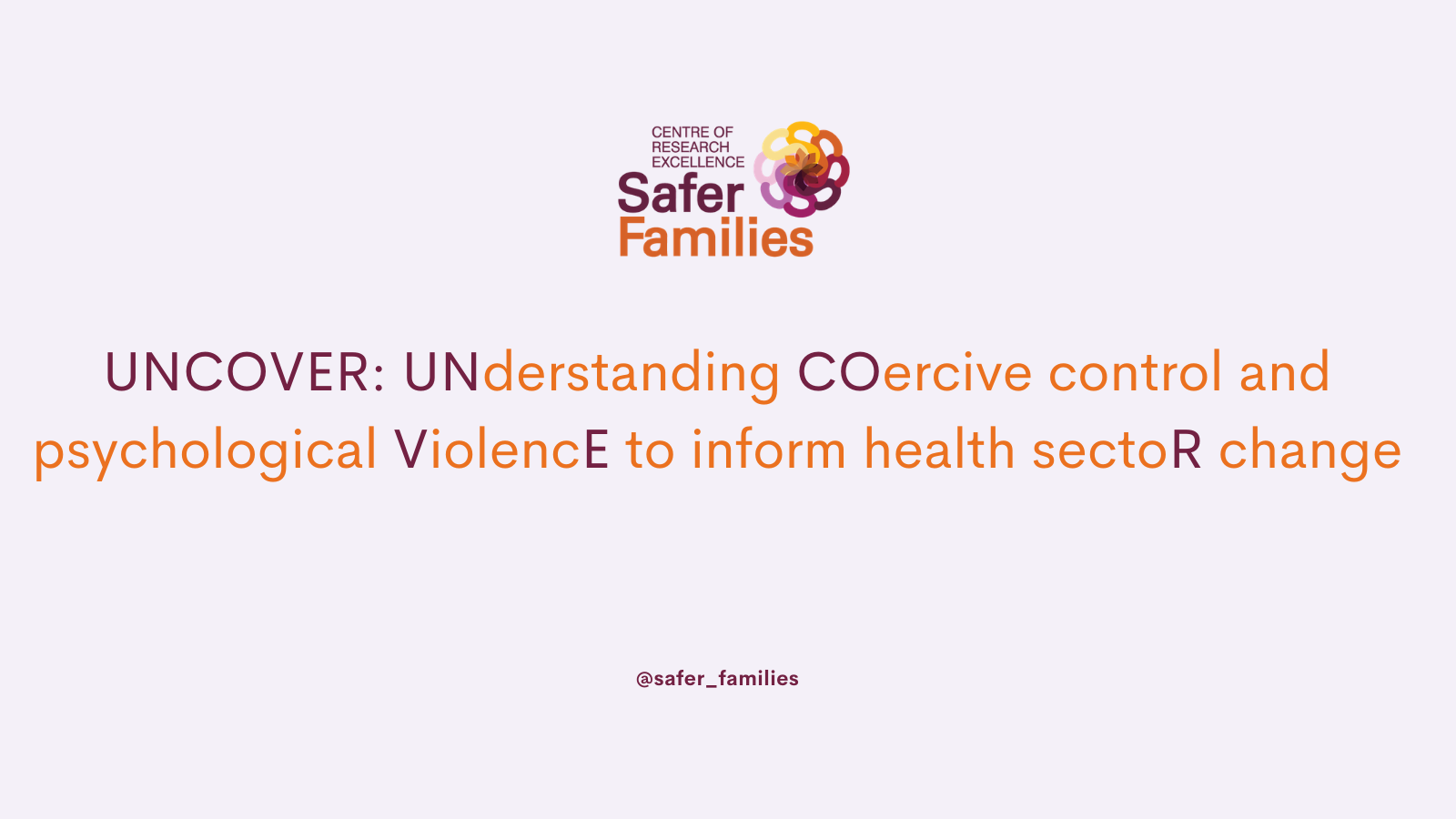Understanding coercive control and psychological violence to inform health sector change
Through the UNCOVER project, we are mobilising innovation for health services to effectively engage with women experiencing psychological violence and their children through the development of:
trauma and violence informed approaches to empower women experiencing psychological violence to seek safety and healing
partnerships that reflect the voices and realities of women with lived experience of psychological abuse
evidence that can influence policy and practice globally to promote social and cultural change towards psychological violence being seen as part of the spectrum of domestic violence.
Our research in this area has informed the development of:
5As –ALONE – ASK – ASSESS – ALLY – ADVOCATE
A practical health system framework available for use in health servicesScripts for health practitioners
Key messaging for policy and practice that help to address psychological abuse:
What women experiencing psychological violence want from health practitioners
Understanding perpetrator motivations in reproductive coercion and abuse
Associations and patterns in women’s experiences of different types of abuse
Effects of pandemic experienced by victim survivor mothers and their children/adolescents
Related publications
Mothering in the Aftermath of Reproductive Coercion and Abuse
Development and Validation of the Psychological Abuse in Relationships Scale
Women's expectations of healthcare providers in the context of reproductive abuse in Australia.
TRIGGER WARNING: These videos may contain content that could be triggering for some viewers. We recommend undertaking a grounding exercise before and after viewing
Part 1: “A Cult for Two People”
True stories of emotional abuse in the context of family violence.
Part 2: “Respond with Kindness” True accounts of what women expect from health practitioners.
UNCOVER team
Kelsey Hegarty (University of Melbourne)
Laura Tarzia (University of Melbourne)
Mandy McKenzie (University of Melbourne)
Liz McLindon (University of Melbourne)
Fiona Burgemeister (University of Melbourne)
Stephanie Brown (Murdoch Children’s Research Institute)
Deirdre Gartland (Murdoch Children’s Research Institute)
Kelly Fitzpatrick (Murdoch Children’s Research Institute)
Cathy Humphreys (University of Melbourne)
Kristin Diemer (University of Melbourne)
Oak Foundation
Our Centre’s UNCOVER project has been made possible thanks to the support of Oak Foundation. Our project forms part of the Issues Affecting Women Programme’s grant-making strategy highlighting psychological violence and coercive control in intimate relationships. One of the strategy’s priorities is to have research that leads to practical outcomes.
Oak Foundation commits its resources to address issues of global, social and environmental concern, particularly those that have a major impact on the lives of the disadvantaged. With offices in Europe, Africa, India and North America, Oak Foundation makes grants to organisations in approximately 40 countries worldwide. Learn more about Oak’s Issues Affecting Women Programme here.



